What do all of these numbers mean? ☝️
Are you staring at all of these numbers right now, #name, trying to figure out what the heck is going on? Well, let’s help you make some sense of it all.
First of all, based on how you answered the questions in our Macro Calculator, we’re guessing you’re either trying to burn fat or lose weight. Kudos to you! And best of luck!
With that being said, this means you need to be eating less calories than you normally do, which would put you into what is known as a caloric deficit.
Now, it’s important to make sure that this deficit isn’t too aggressive, as that can have negative effects on your metabolism over time, which will inevitably bring your results to a grinding halt.
Based on our calculations, the ideal amount of daily calories for you to be consuming to reach your fat-loss or weight-loss goal is #calories calories.
First of all, based on how you answered the questions in our Macro Calculator, we’re guessing you’re either trying to gain weight or build muscle. Kudos to you! And best of luck!
With that being said, this means you need to be eating more calories than you normally do, which would put you into what is known as a caloric surplus.
Now, it’s important to make sure that this surplus isn’t too aggressive, as that can lead to unhealthy weight gain and unnecessary fat storage, which we’re guessing is not what you’re after.
Based on our calculations, the ideal amount of daily calories for you to be consuming to reach your healthy weight-gain goal is #calories calories.
First of all, based on how you answered the questions in our Macro Calculator, we’re guessing either you’re trying to maintain your current weight or you’re just interested in getting in better overall shape. Kudos to you! And best of luck!
With that being said, this means you need to be eating the right number of calories for your height, weight, body composition, and activity level. You’re not looking to gain or lose weight, so you’ll be eating within your caloric maintenance level.
Based on our calculations, the ideal amount of daily calories you’ll need to consume for a body re-composition or to maintain your current weight is #calories calories.
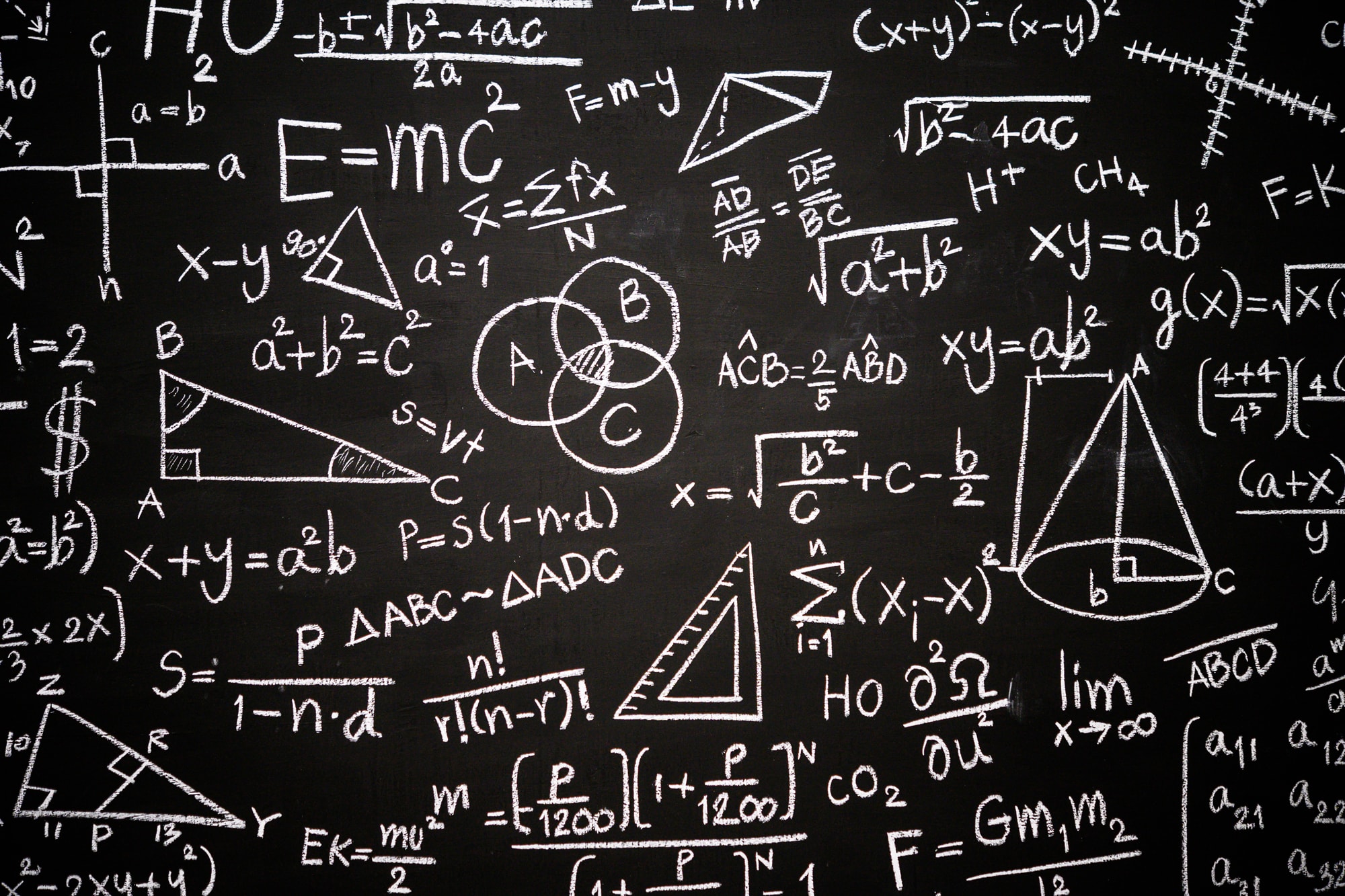
If you’re wondering how exactly we got to this number — we can’t tell you — it’s top secret. 😅
But what we can tell you is this… it wasn’t by “accident” or wave of a magic wand, although it might have seemed that way with our nifty little calculator.
Our proprietary formula is based on decades of combined personal experience, experimentation, and trial and error — all at the expense of you not having to go through the same struggle.
We’ve also tested this formula with hundreds of individuals over the years and tweaked it until it was absolutely perfect.
Now, we may or may not be preaching to the choir here, but just in case you didn’t already know…
The amount of calories you consume is the number one deciding factor of your success.


If you’re truly a complete beginner and want a comprehensive look at calories, check out Calories 101: A Beginner’s Guide to Tracking Calories. 👈
Now, let’s make something clear: #calories calories isn’t the “be-all end-all” number, of course, but it certainly is a good starting point to help you reach your personal fitness goal.
In fact, if you signed up for MyQuest Coaching today, these are the EXACT number of calories we would use to build out your initial nutrition plan.
Don’t believe us? Here’s a screenshot of our member’s only dashboard area:
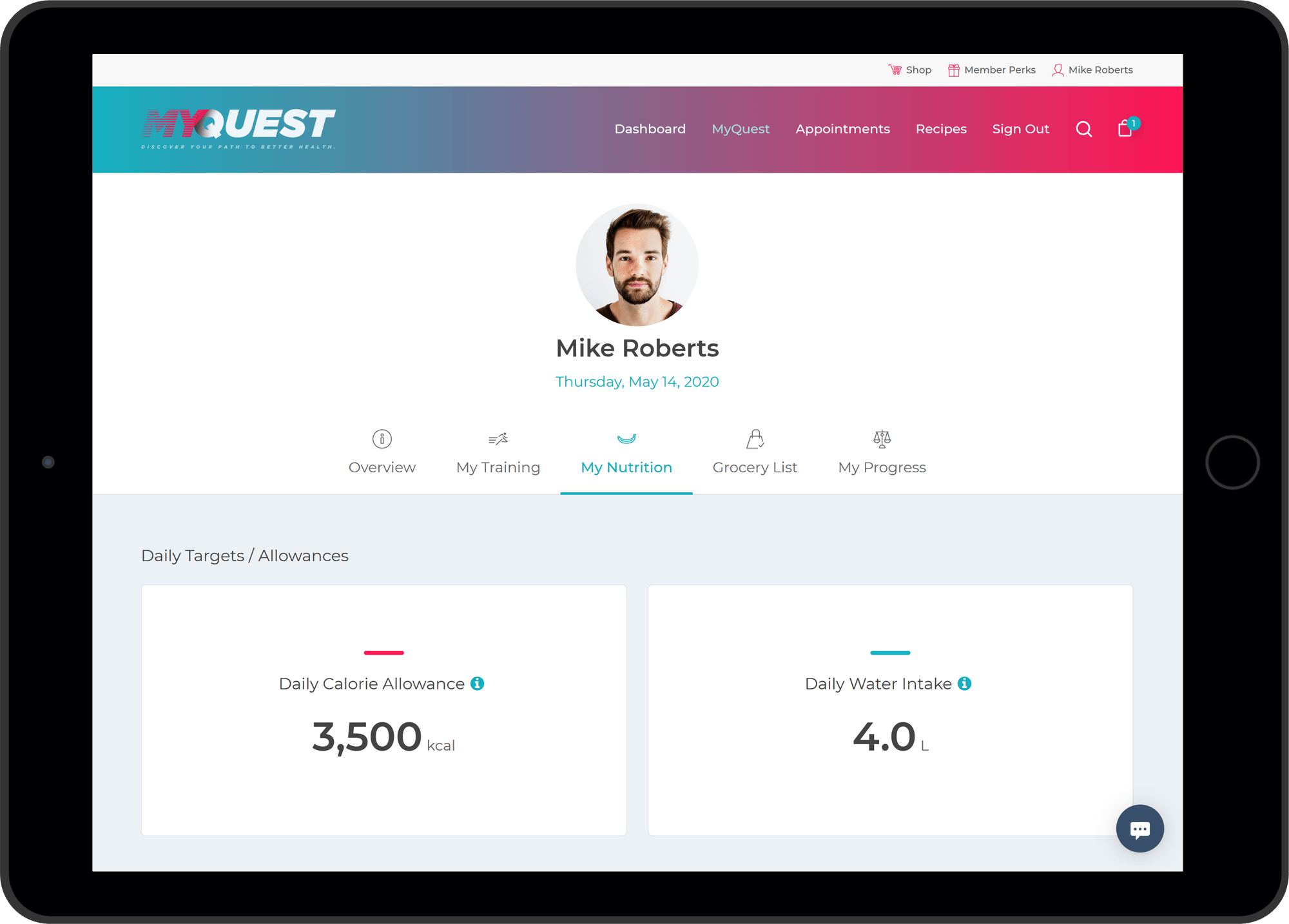
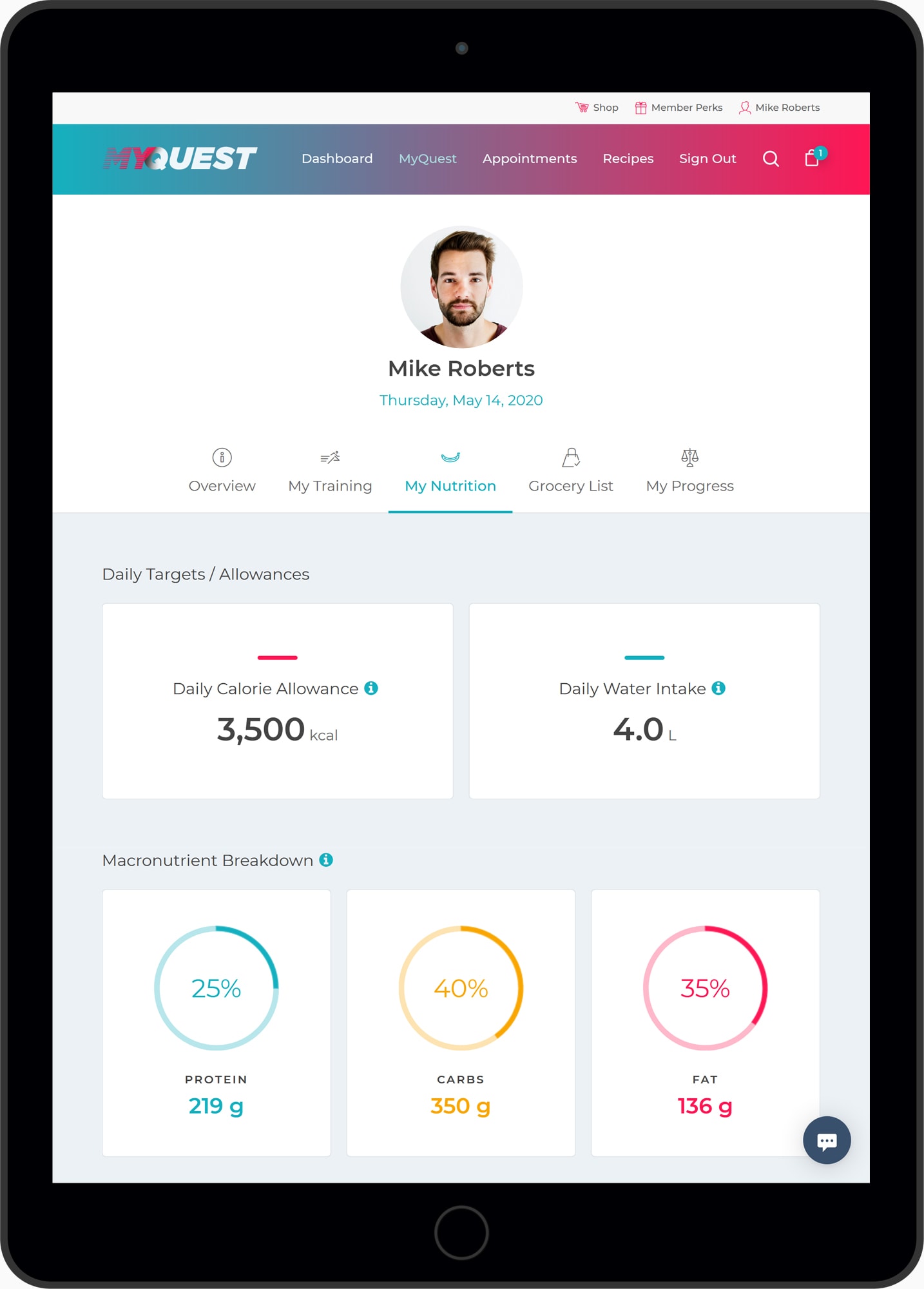
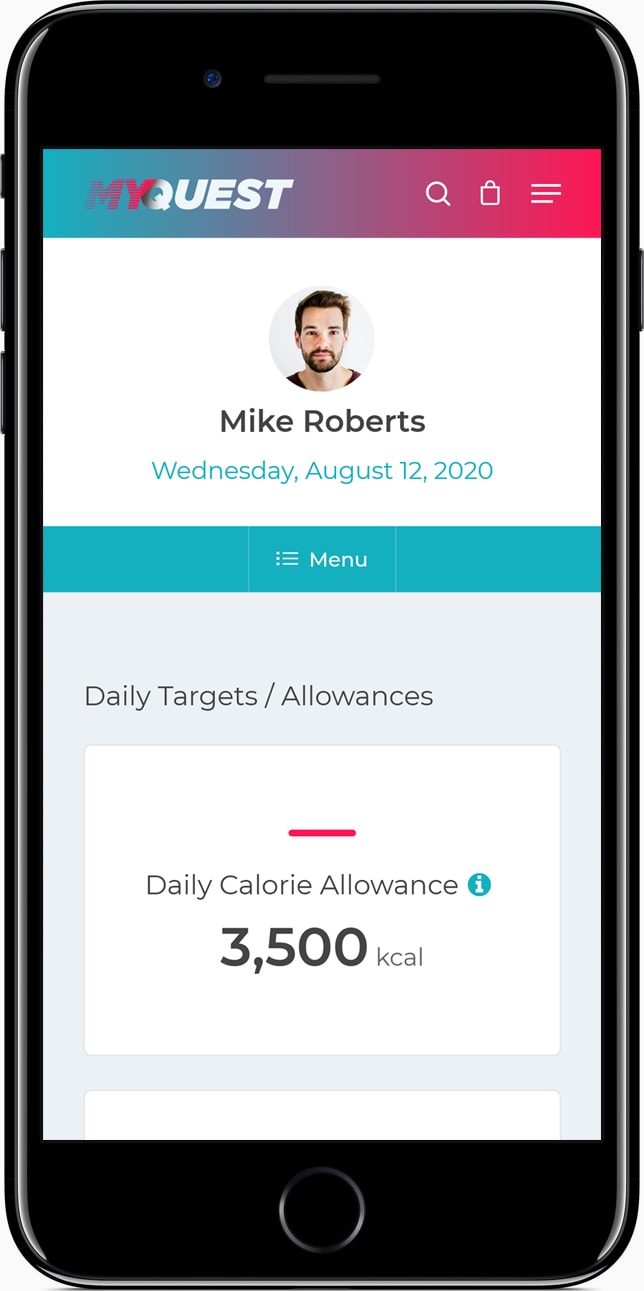
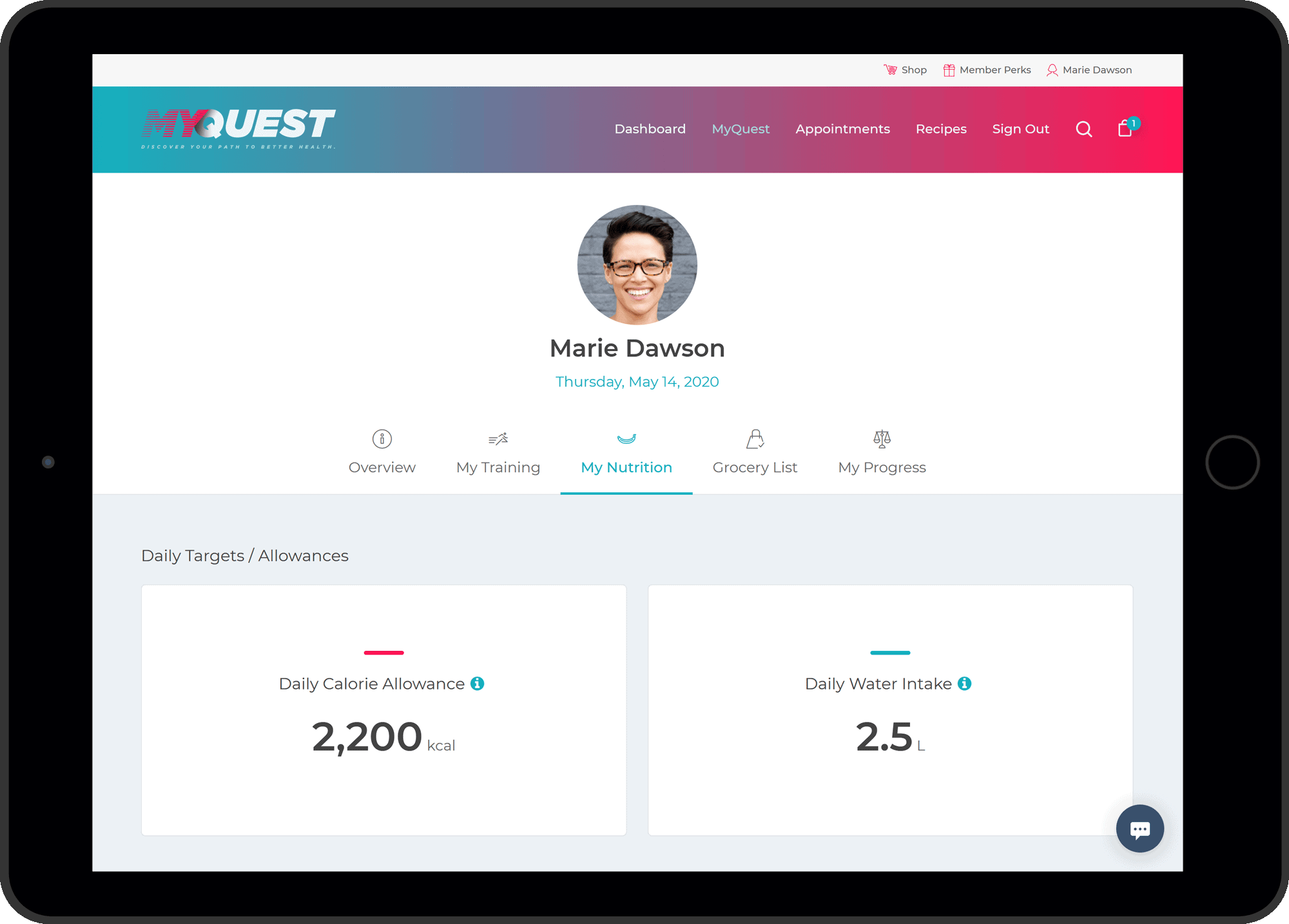
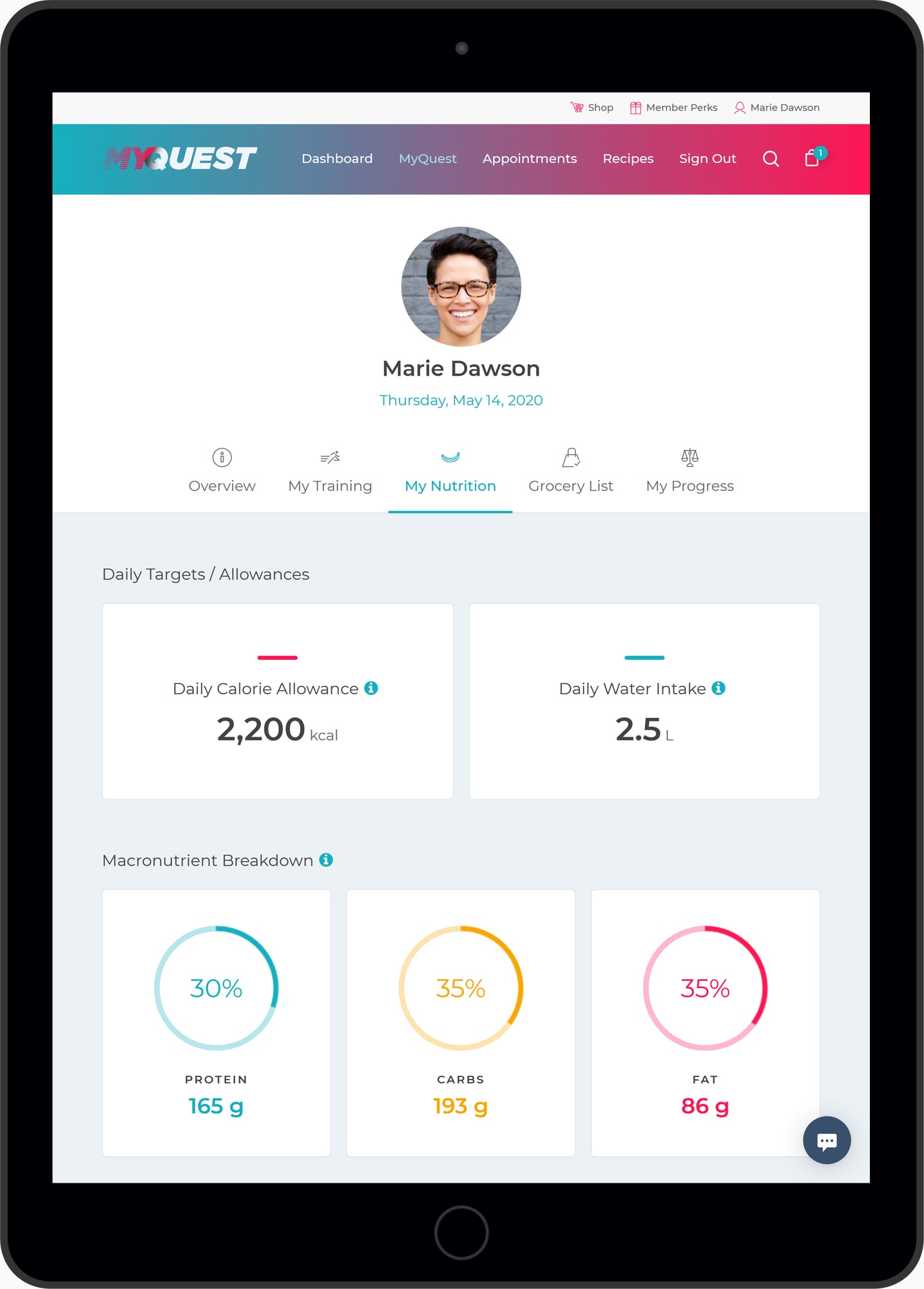
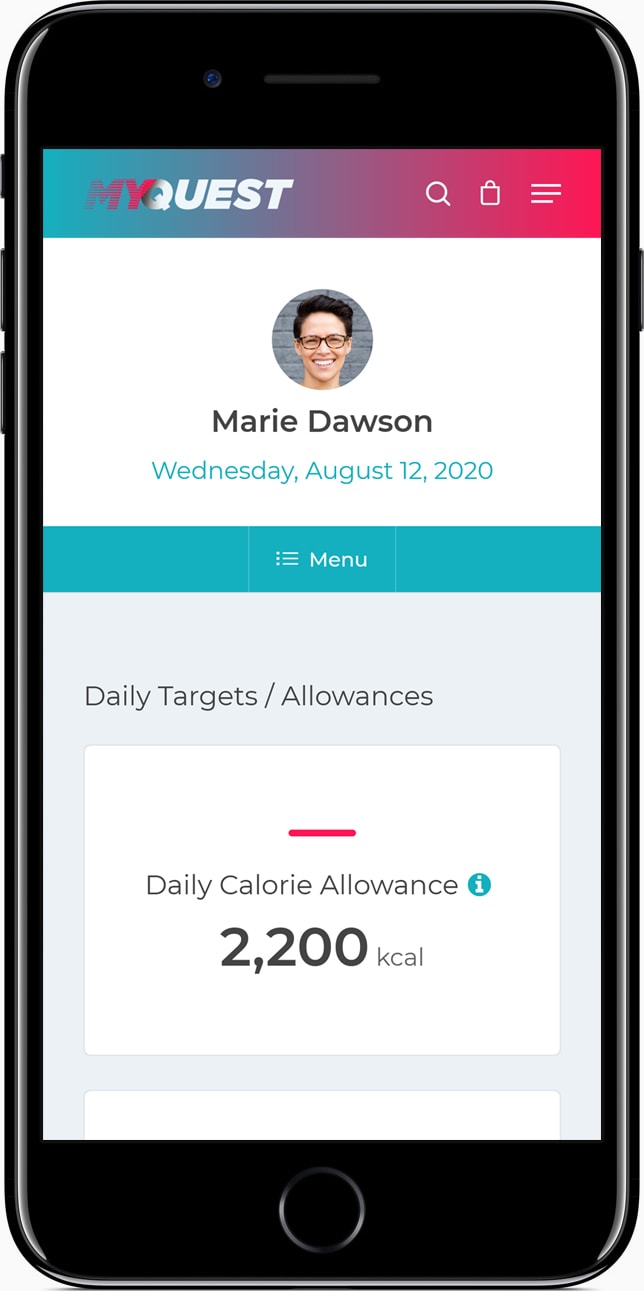
Notice the similarities?
The only difference is that MyQuest members gain full access to a completely customized program and 24×7 support from a MyQuest Coach; however, the caloric foundation is exactly the same.
So, really, all you have to do now is either: 1) build the nutrition plan yourself; or 2) let us take away all of the guesswork and build you a completely custom fitness program tailored to your exact needs.
In either event, we’re still rooting for you! 💪
P.S. If you’re still confused, continue scrolling; we’ve got some more explaining to do. 👇
Do these numbers look weird to you?
After seeing your macros, you can only be thinking one of three things right now:
- these numbers look really low;
- these numbers look awfully high; or
- these numbers look right on the money
If you’re thinking they look low, you’ve probably been using some kind of cookie-cutter macronutrient calculator that has you eating way too many calories.
If you’re thinking they look high, again, your previous calculator is leading you astray and probably has you eating way too few calories.
If you’re thinking they look right on the money, then you’ve probably been using our Macro Calculator because these numbers are damn near perfect!
Look, we get it! You’ve been around the block a few times — you know what you’re doing — and right now you’re just trying to get back into the swing of things and burn some body fat. First of all, kudos to you! And best of luck!
With that being said, you probably already know that this means you need to be eating less calories than normal, which will put you into a caloric deficit.
So, what’s the main difference between our Macro Calculator and the rest? We understand the importance of making sure that your calorie deficit isn’t so aggressive that it destroys your metabolism over time, which will inevitably bring your results to a grinding halt.
Based on our calculations, the ideal amount of daily calories for you to be consuming to reach your fat-loss or weight-loss goal is #calories calories.
Look, we get it! You’ve been around the block a few times — you know what you’re doing — and right now you’re just trying to get back into the swing of things, gain some healthy weight, and put on some muscle. Kudos to you! And best of luck!
With that being said, you probably already know that this means you need to be eating more calories than normal, which will put you into a caloric surplus.
So, what’s the main difference between our Macro Calculator and the rest? We understand the importance of making sure that your calorie surplus is slow and steady, so that it packs on all the good lean healthy weight and not any unnecessary fat.
Based on our calculations, the ideal amount of daily calories for you to be consuming to reach your weight-gain or muscle building goal is #calories calories.
Look, we get it! You’ve been around the block a few times — you know what you’re doing — and right now you’re just trying to maintain some healthy weight or just get in better shape. First of all, kudos to you! And best of luck!
With that being said, you probably already know that this means you need to be eating the right number of calories for your height, weight, body composition, and activity level. And since you’re not looking to gain or lose weight, you’ll be eating within your caloric maintenance level.
So, what’s the main difference between our Macro Calculator and the rest? We understand the importance of making sure that your caloric balance actually keeps things — well — balanced and doesn’t tip the scale in either direction.
Based on our calculations, the ideal amount of daily calories you’ll need to consume for a body re-composition or to maintain your current weight is #calories calories.

If you’re wondering how exactly we got to this number — we can’t tell you — it’s top secret. 😅
But what we can tell you is this… it wasn’t by “accident” or wave of a magic wand (though it might have seemed that way with our nifty little calculator).
Our proprietary formula is based on decades of combined personal experience, experimentation, and trial and error — all at the expense of you not having to go through the same struggle.
We’ve also tested this formula with hundreds of individuals over the years and tweaked it until it was absolutely perfect.
We’re pretty sure we’re preaching to the choir here, but just in case you didn’t already know…
The amount of calories you consume is the number one deciding factor of your success.
You may or may not need this, but just in case you’re interested in a comprehensive look at calories, check out Calories 101: A Beginner’s Guide to Tracking Calories. 👈
Now, let’s be clear: #calories calories isn’t the “be-all end-all” number, but it certainly is a good starting point to help you reach your personal fitness goal.
In fact, if you signed up for MyQuest Coaching today, these are the EXACT number of calories we would use to build out your nutrition plan.
So, really, all you have to do now is either: 1) build the nutrition plan yourself; or 2) let us take away all of the guesswork and build you a completely custom fitness program tailored to your exact needs.
In either event, we’re still rooting for you! 💪
How did we do, Macro Ninja?
After seeing your macros, you can only be thinking one of three things right now:
- these numbers look really low;
- these numbers look awfully high; or
- these numbers look right on the money
If you’re thinking they look low, you’ve probably been using some kind of cookie-cutter macronutrient calculator that has you eating way too many calories.
If you’re thinking they look high, again, your previous calculator is leading you astray and probably has you eating way too few calories.
If you’re thinking they look right on the money, then you’ve probably been using our Macro Calculator because these numbers are damn near perfect!
Truth be told, we probably shouldn’t be giving you any advice, since you’re a Macro Ninja and all, but here goes nothing:
Look, you’ve clearly been around the block — you know what you’re doing — and right now you’re just trying to get back into the swing of things and burn some body fat. First of all, kudos to you! And best of luck!
With that being said, you obviously already know that this means you need to be eating less calories than normal, which will undoubtedly put you into a caloric deficit.
So, you’re obviously using our calculator for a reason. Maybe you’re trying to put us to the test or maybe you’re just too lazy to calculate all of your macro totals yourself. In any event, let’s bring you up to speed on our math here at MyQuest.
The main difference between our Macro Calculator and the rest is that we understand the importance of making sure that your calorie deficit isn’t so aggressive that it slowly destroys your metabolism inevitably bringing your results to a grinding halt.
Based on our calculations, the ideal amount of daily calories for you to be consuming to reach your fat-loss or weight-loss goal is #calories calories.
Look, you’ve clearly been around the block — you know what you’re doing — and right now you’re just trying to get back into the swing of things, gain some healthy weight, and put on some muscle. Kudos to you! And best of luck!
With that being said, you obviously already know that this means you need to be eating less calories than normal, which will undoubtedly put you into a caloric deficit.
So, you’re obviously using our calculator for a reason. Maybe you’re trying to put us to the test or maybe you’re just too lazy to calculate all of your macro totals yourself. In any event, let’s bring you up to speed on our math here at MyQuest.
The main difference between our Macro Calculator and the rest is that we understand the importance of making sure that your calorie deficit isn’t so aggressive that it slowly destroys your metabolism inevitably bringing your results to a grinding halt.
Look, you’ve clearly been around the block — you know what you’re doing — and right now you’re just trying to maintain some healthy weight or just get in better shape. First of all, kudos to you! And best of luck!
With that being said, you obviously already know that this means you need to be eating the right number of calories for your height, weight, body composition, and activity level. And since you’re not looking to gain or lose weight, you’ll be eating within your caloric maintenance level.
So, you’re obviously using our calculator for a reason. Maybe you’re trying to put us to the test or maybe you’re just too lazy to calculate all of your macro totals yourself. In any event, let’s bring you up to speed on our math here at MyQuest.
The main difference between our Macro Calculator and the rest is that we understand the importance of making sure that your caloric balance actually keeps things — well — balanced and doesn’t tip the scale in either direction.
Based on our calculations, the ideal amount of daily calories you’ll need to consume for a body re-composition or to maintain your current weight is #calories calories.

If you’re wondering how exactly we got to this number — we can’t tell you — it’s top secret. 😅
But what we can tell you is this… it wasn’t by “accident” or wave of a magic wand (though it might have seemed that way with our nifty little calculator).
Our proprietary formula is based on decades of combined personal experience, experimentation, and trial and error — all at the expense of you not having to go through the same struggle.
We’ve also tested this formula with hundreds of individuals over the years and tweaked it until it was absolutely perfect.
We’re pretty sure we’re preaching to the choir here, but just in case you didn’t already know…
The amount of calories you consume is the number one deciding factor of your success.
You probably won’t need this, but if you’re interested in a comprehensive look at calories, check out Calories 101: A Beginner’s Guide to Tracking Calories.
Now, let’s be clear: #calories calories isn’t the “be-all end-all” number, but it certainly is a good starting point to help you reach your personal fitness goal.
In fact, if you signed up for MyQuest Coaching today, these are the EXACT number of calories we would use to build out your nutrition plan.
So, really, all you have to do now is either: 1) build the nutrition plan yourself; or 2) let us take away all of the guesswork and build you a completely custom fitness program tailored to your exact needs.
In either event, we’re still rooting for you! 💪
So, what exactly are “macros” anyway?
Here’s a super duper ultra-fast explanation, #name.
“Macros” is short for macro-nutrients and macro simply means “large in scale”. In layman’s terms, macronutrients are the foods (or nutrients) that make up the largest portion of your diet.
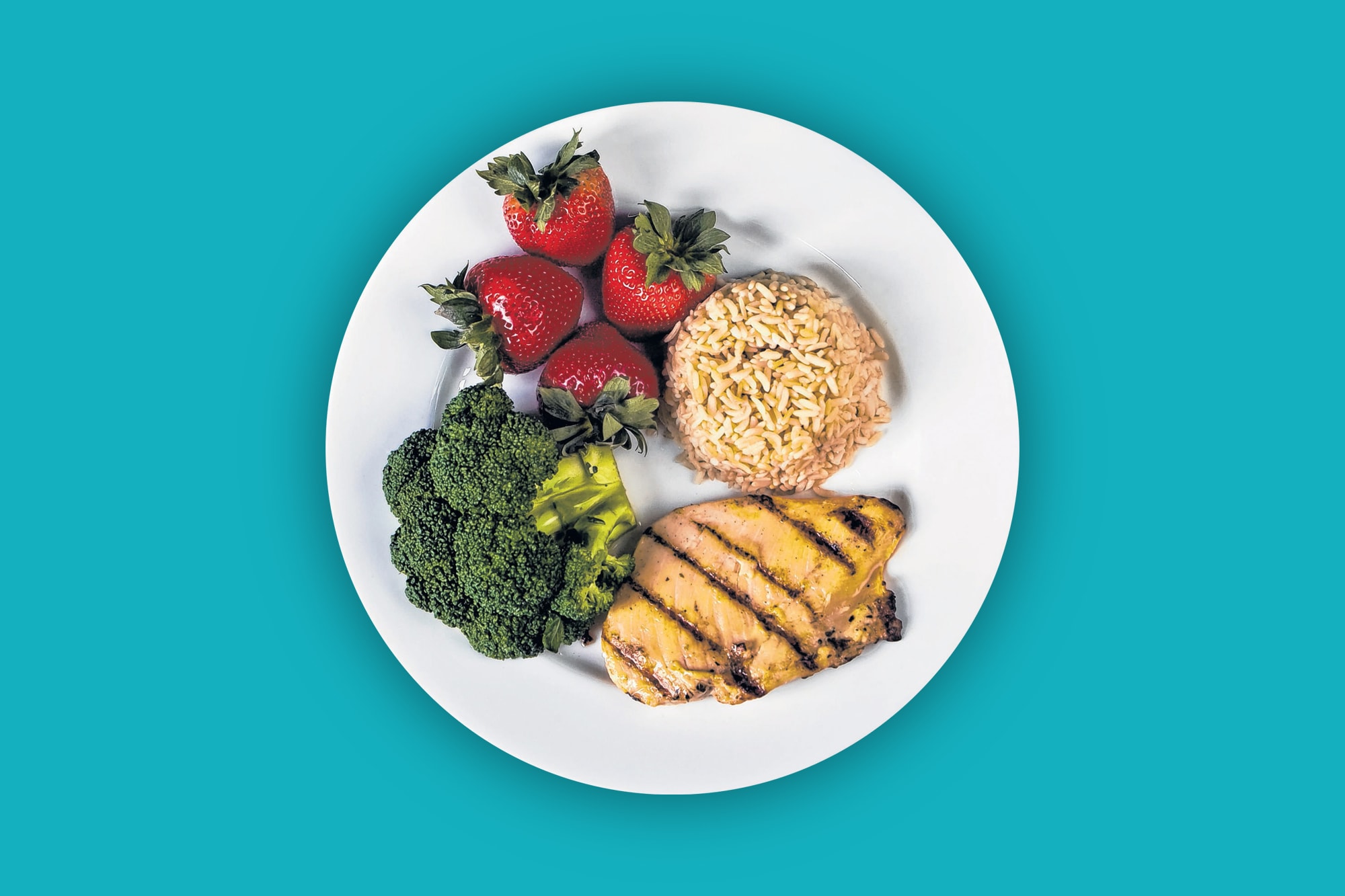
These include the following: proteins, carbohydrates, fats, and — the most important one that everyone always seems to fail to mention — water.
Now, in all fairness, water is usually left out since it doesn’t contain any calories; thus, it doesn’t produce any energy. This being said, it’s just as equally as important as the other macros, so don’t forget about it!
Ultimately, all macronutrients — minus water — supply the body with energy. However, each of them plays a unique role within the body.
To keep it super simple, let’s break these down as they pertain to your health and fitness journey:
Proteins are mostly used to build muscle (as well as hormones and other proteins), carbohydrates are used mainly to produce energy, and fats are also used to produce energy but at a much slower rate.
So do I have to follow these macronutrient amounts exactly?
The quick and short answer: No.


There are people who absolutely swear by following their macros down to the decimal, but that’s not our philosophy here at MyQuest. Instead, we advocate for much more flexible dieting. 🍔
The only rule we have regarding macronutrients is that you eat a nice balanced assortment of them as a means of getting all of the required nutrients into the body. That’s it!
Of course, there are exceptions for those with certain medical concerns, but for a standard healthy individual, you needn’t worry yourself too much about the numbers at all.
For starters: Just stick to eating the right amount of calories for your goal. ✅
On the other hand, if you’re secretly aspiring to be a macronutrient ninja, and you want to follow everything “by the book” so-to-speak , then by all means, go ahead and use the numbers up above.
We calculated them all for a reason: to make things easier for you.
If you’re not exactly sure how to build out a sound nutrition plan using all of the information we’ve provided, you’re definitely not alone. It’s a lot of information to process.
And if you need our assistance, we’d be absolutely thrilled to help you reach your goals.


